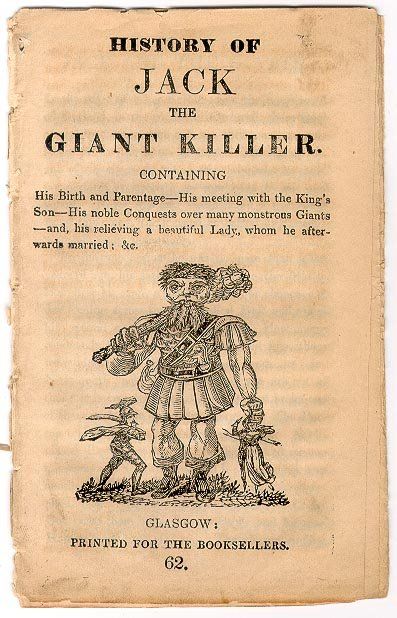What on earth is a chapbook???
- By John Seymour
- •
- 17 May, 2018
- •
How working with chapbooks can be useful for a modern writer...

Chapbooks have been around for centuries, and represent one of the oldest forms of pulp publication. But what relevance do they have in the modern world? And how exactly can the idea of a chapbook be of use to a modern writer? Well, they are still around - and they can be a useful means of self-promotion, especially if you're just embarking on building your name and reputation...
Traditionally, from as long ago as medieval times, a chapbook was simply a pamphlet containing (usually) a traditional story or folktale, printed cheaply to be distributed widely for little cost. The principle of low-cost publication is still the basis of the printed chapbook, but nowadays it's used mainly as a form of self-promotion by individual writers and poets.
The more modern equivalent of a chapbook is typically a short publication, usually homemade, containing examples to showcase the work of a writer or group of writers. The chapbook is then sold to the public for a small fee to cover costs.
- They’re usually between 6 and 40 pages in length
- They’re usually printed on A4 or A5 paper, often on a home printer (as opposed to being professionally printed)
- Some are produced very cheaply, e.g. on ordinary plain paper and held together with staples
- Others, though, are lovingly made, and additional features are sometimes used to add value to them and make them special, for instance, hand-illustrated or hand-painted covers, or sometimes hand-stitched binding
- Usually, a chapbook will showcase the work of one author. Because of their short length, they suit poets and short story writers best, but you do sometimes see chapbooks containing extracts from a novel or autobiographical writing. Some chapbooks mix and match forms of writing by the same author, though this is less common. Also less common are chapbooks containing work from a number of authors/poets.
- A chapbook will usually have some sort of unifying theme linking together the work it contains.
So, why produce a chapbook? A homemade chapbook can be a useful tool to spread the word about your writing. It doesn’t require you to have a publisher, won’t cost the earth to make, and is relatively simple to put together. The difficulty is in getting the chapbook to your audience. This is why they’re often combined with readings. Anyone can arrange a reading of their work – all you need to do is hire a room and advertise – and having a chapbook to sell to your audience gives them something to take away and remember you by, and hopefully they’ll spread the word about you. A chapbook can get your work out there and start getting you talked about. Think of it as the literary equivalent of a band selling a homemade CD at a gig.
Of course, nowadays there is such a thing as an e-chapbook (or e-chap), the electronic equivalent of the traditional paper chapbook. These are produced online for sale as virtual books to be downloaded to e-readers. As they're electronic, the way e-chapbooks are put together, produced and distributed tends to differ slightly from the standard paper version.
- E-chapbooks tend not to be made by individual writers (though this is perfectly achievable). Instead, they're usually created by online publishers. Some such publishers specialise in only producing e-chapbooks.
- The downside to this is that to be included in a professionally created e-chapbook you need to apply to the publisher or enter a competition, and that usually costs money, with no guarantee of success.
- E-chapbooks are more likely to contain the work of multiple writers, all of whom might have responded to the same theme, prompt or idea.
I'd recommend you think carefully about the consequences for future publication of the work you include in a chapbook or submit to an e-chapbook. For instance, if you're submitting to an e-chapbook, check out the terms and conditions of publication carefully in case it impacts upon the sale of the work elsewhere. Having said that, though, working with chapbooks can represent a useful possibility for a writer or poet in promoting your work and spreading the word about your writing activities.

Anyone can make a blog:
For better or worse, anyone can write a blog post about anything they want. Everyone has a voice and the best voices will rise to the top.
The blog writer can showcase their personality:
In blog posts, the writer has more leeway to add in their voice and personality than in other types of online writing.
Blogs are a great form of mass communication:
You can help people, teach them new things, entertain your audience—the possibilities are endless and amazing. Blogging opens up all of these possibilities to a very wide audience.
You can make money:
Get the right blog going and you can make a lot of money through advertising and sponsored posts.
It allows people to craft better thoughts:
Instead of reading haphazard, uneducated Facebook statuses, it’s much better to see people’s thought process in a well-written blog post.
You can establish a community:
Blogging allows you to connect with other individuals who share the same interests. Sharing ideas and opinions within your community helps establish yourself as a thought leader.
Good for SEO:
Keeping content on your site fresh and relevant, you can use your blog to boost the search engine ranking (SEO) of your site.
It brings people back to your site:
If your blog is strong enough and updated regularly, people will come back looking for more and bring traffic back to your site as well.
It’s free:
It costs you a grand total of zero dollars to post to a blog, so if you have something to say, there’s nothing to stop you.
You can establish yourself as a thought leader:
A blog is a great place for your original thoughts, and it can be a wonderful way to show off your individuality. If people like your ideas, you can become a thought leader!
What do you love about blogs? Let me know!


